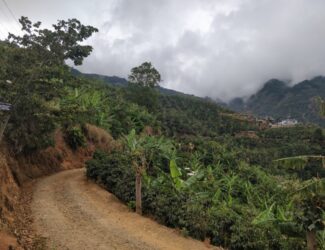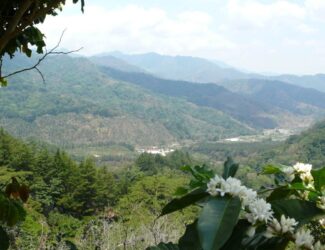
Uganda’s 2023/24 Coffee Season: Record Exports and Shifting Fortunes for Robusta and Arabica
Uganda closed its 2023/24 coffee season on a high note with 6.3 million bags exported, marking the second-highest export level in history and a 3% rise over the previous year. Despite these promising results, the season reflected a mixed performance between Robusta and Arabica coffee varieties, as reported by Commercial Supervisor Thomas Pitault. Robust Robusta exports surged by 8% to 5.5 million bags, driven by favorable weather. However, Arabica faced a sharp drop in yield, resulting in a 20% decline, with exports falling to 800,000 bags.
Robusta’s Strong Season and Upcoming Challenges
The Robusta crop thrived during the May-August 2024 harvest, attributed to favorable weather from late 2023 to early 2024. This allowed for rapid cherry maturation and a higher-than-usual yield, with 5.5 million bags shipped to market. Increased exports were further stimulated by high interest rates and upcoming European Union Deforestation Regulation (EUDR) requirements, leading companies to expedite shipments.
However, the outlook for the next harvest season is less optimistic. Observations indicate that 70% of Robusta trees show signs of strain, largely due to last season’s abundance, which limited the development of new flowers. Additionally, expected dry conditions, possibly linked to a return of the La Niña climate pattern in November, could hinder bean growth, with production anticipated to fall by 11% to approximately 5.3 million bags.
Arabica’s Struggles and Prospects for Recovery
Arabica production in Uganda dropped significantly this year, with total yield falling by 15% to an estimated 850,000 bags. Several factors contributed to this decline, including an off-cycle following drought-affected seasons and the challenges faced by aging coffee plants. A reduction in fruit during the April-May fly crop, attributed to dry spells in 2023, further limited output.
Despite these setbacks, the 2024/25 crop season shows potential for slight recovery. The February 2025 secondary harvest is expected to bring yields up to 900,000 bags, representing a 6% improvement over this year’s output, though still 10% shy of Uganda’s optimal yield potential.
Strengthening Sustainability and Farmer Support in Uganda
To counter the impact of climate change and regulatory demands like the EUDR, Ugacof has intensified efforts to support farmers through a robust direct sourcing network. This year, Ugacof expanded its coffee processing infrastructure with the establishment of its sixth washing station in Western Uganda, aiming to connect farmers directly to premium markets and offer quality-based incentives for their beans.
In the Robusta regions, additional hulling stations and buying centers now offer farmers stable, traceable outlets for their coffee, supporting the adoption of improved farming practices. Through the IMPACT program, which now includes over 12,500 farmers, Ugacof is enhancing its Rainforest Alliance-certified supply chain, promoting quality coffee production, and bolstering local incomes.
Ugacof’s recent collaboration with a regional tech startup for polygon mapping strengthens its EUDR compliance, ensuring traceability across thousands of coffee farms. With over 60% of Uganda’s coffee exports destined for Europe, this commitment underscores the country’s proactive approach to meeting stringent export standards and supporting a sustainable future for Ugandan coffee.
- By : ali alzakary
- On :
Latest Posts
- First Look at the Central America Coffee Harvest 2025 / 2026
- JDE Peet’s Opens Transformed Innovation Laboratory in Utrecht to Accelerate Coffee Breakthroughs
- EU’s New Organic Regulation Reshapes Coffee Value Chains Worldwide
- Breaking the Commodity Trap: A Conversation with Burke Campbell on Coffee, Sovereignty, and Nation Building
- SSP Group Reports Strong Annual Growth



